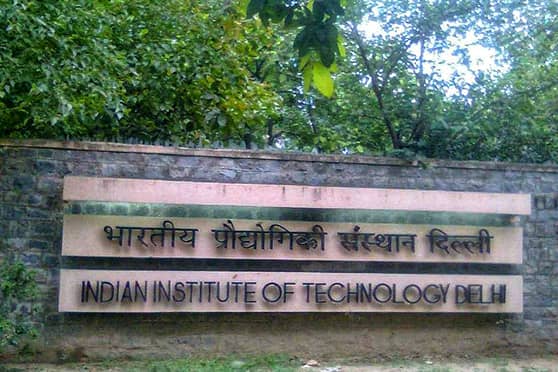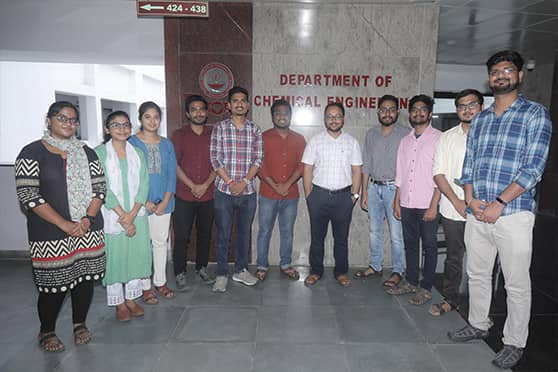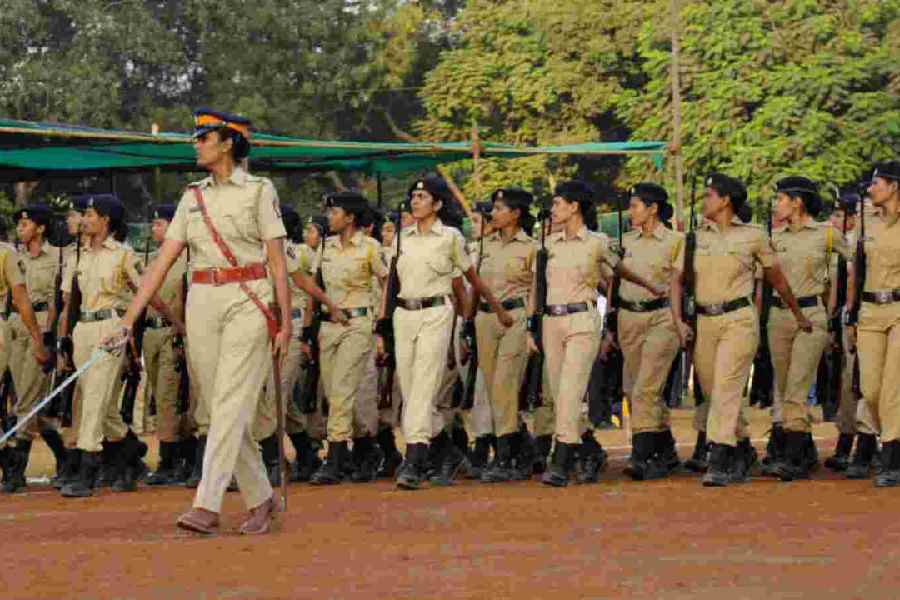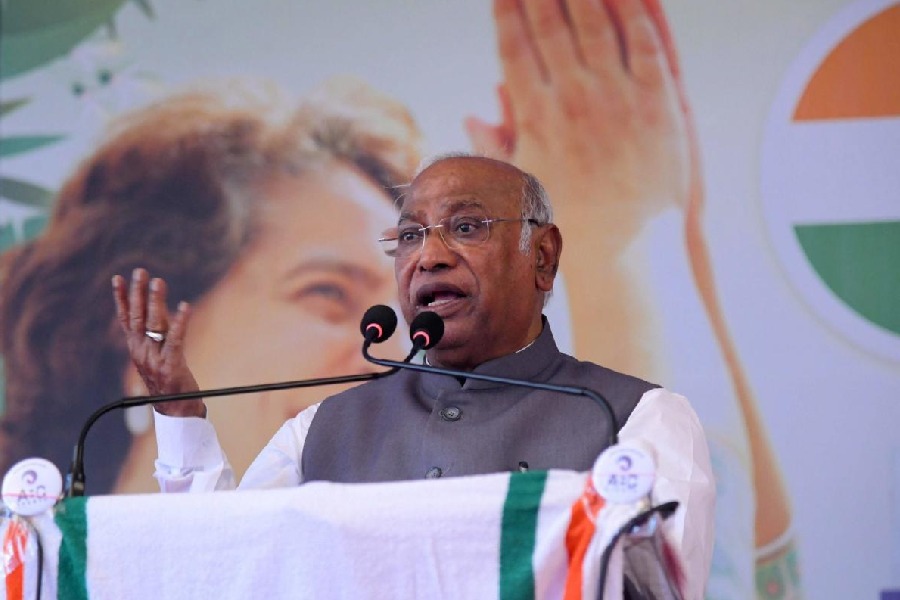Master’s and PhD courses face huge vacancies in the Indian Institutes of Technology, National Institutes of Technology and the Indian Institutes of Information Technology, suggesting a waste of research opportunities at these premier tech schools.
Data provided by junior education minister Subhas Sarkar in the Rajya Sabha on Wednesday show that vacancies in postgraduate courses like MTech and MSc rose from 2,487 in 2020-21 to 3,413 in 2021-22 in the NITs. Vacancies in PhD seats too were high in the IITs, NITs and IIITs. (See chart)
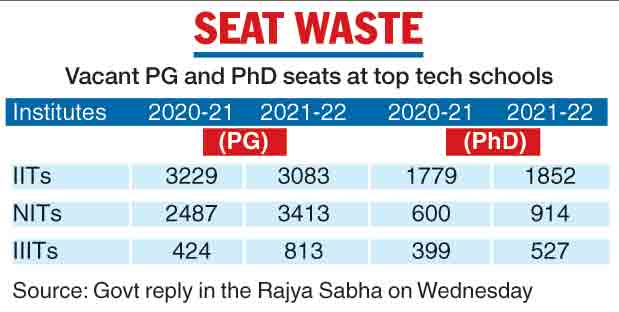
“So many seats at research level remaining vacant is a loss for the country,” said Rajeev Kumar, a professor at JNU’s School of Computer and System Sciences.
He blamed the “lack of integrated counselling among these institutions”. In undergraduate programmes like BTech, where the three chains of top tech schools hold common counselling, seat vacancies in 2020-21 and 2021-22 have been only 476 and 361 in the IITs, 654 and 685 in the NITs, and 514 and 510 in the IIITs. This despite there being far more BTech seats than MTech or PhD seats at these colleges.
However, the IITs, NITs and IIITs do not hold common counselling for research courses. This means, a student can secure admission to more than one institute, block all the seats, and later turn up in one when it’s too late for the others to fill the vacancies created.
An NIT professor cited another reason for the vacancies. He said the public sector undertakings (PSUs) recruit a large number of MTech and PhD students just months after admission, and suggested the government ask these organisations to complete their yearly recruitments before admission season.
In the House, BJP member Kamakhya Prasad Tasa sought the reasons for the seat vacancies. “Are students not interested (in) PG and PhD courses?” he asked. Sarkar sought to explain the trend in terms of a success story — a rise in opportunities for jobs and self-employment.
“The country is progressing. And because of that there is high-level attrition in master’s and PhD programmes due to better employment opportunities. When they go for research, they get opportunities and they quit,” Sarkar said.
“Better placement and education opportunities in foreign nations are also there. They go abroad. Also, priority towards management and allied subjects to the engineering graduates and self-employment are also the reasons behind this. After graduation, with soft loan opportunity, they are making start-ups.”
Avinash Kumar, a faculty member at the Centre for Labour Studies, JNU, said the minister should provide evidence for the rosy picture he painted about employment and self-employment opportunities for these students. “People will be happy to know the source the minister is quoting from,” Kumar said.
He said the government should provide segregated data on vacancies among the seats reserved for the Scheduled Castes, Scheduled Tribes and Other Backward Classes so that it’s possible to ascertain any connection between vacancies and social backwardness.
The NIT professor who spoke to this newspaper said: “A few months after the students are admitted, the PSUs issue recruitment letters and the students leave. By that time, they have got scholarships and also made certain progress in their research areas.”
He added: “This is a loss. The PSUs should be asked to complete their recruitments before admission to research courses.” The government had taken such an initiative at a meeting with PSU heads in 2019 but never followed it up, sources said.
Anupam Basu, NIT Durgapur director, suggested that some of the vacancies were a result not of attrition but of a lack of eligible students. He said the private and government engineering colleges (not counting the IITs and NITs) that are the feeder institutions for the master’s and PhD courses at the premier tech colleges do not teach all the BTech disciplines.
“The private and government engineering colleges mostly offer BTech in the popular branches of engineering. In the NITs and the IITs, seats are available in many more areas (at every level) that do not get adequate students (at the master’s and PhD levels),” he said.
His comments corroborate the idea that the brightest students who secure admission to undergraduate courses in the IITs and NITs tend not to enrol in research courses because they are primarily interested in jobs. Conversely, the brightest minds that want to pursue research are likely to enrol in a pure science course at a general college after their higher secondary exams.

